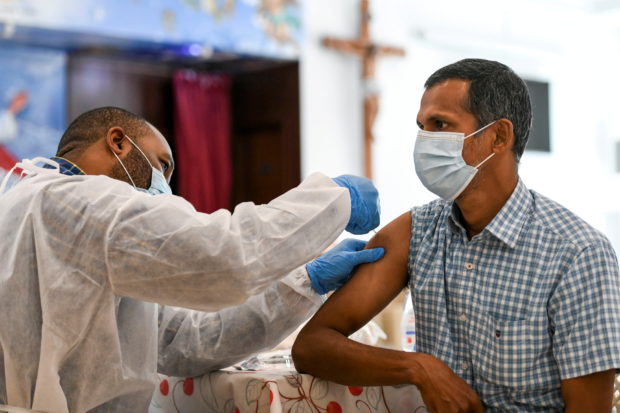
A man receives a dose of a vaccine against the coronavirus disease (COVID-19) at St. Paul’s Church in Abu Dhabi, United Arab Emirates January 16, 2021. REUTERS FILE PHOTO
DUBAI — New coronavirus infections in the United Arab Emirates are mostly from more infectious variants leading to an increase in the number of virus-linked deaths, a federal authority has said.
The Gulf Arab state, with a population of about 9 million, has had one of the world’s fastest vaccination campaigns.
However, cases have risen over the past month to more than 2,000 new infections a day, though that is still below a peak in February.
On Saturday, the UAE recorded 10 deaths, its highest single daily toll since March, according to the Reuters COVID-19 tracker.
The National Emergency Crisis and Disaster Management Authority (NCEMA) said the increase in deaths was due to the spread of the Beta, Delta and Alpha variants.
The Beta variant, first detected in South Africa, is the most dominant variant in the UAE, accounting for 39.2% of cases, it said.
Delta, first detected in India, accounts for 33.9% of infections. Alpha, first detected in Britain, accounts for 11.3%, it said on Twitter late on Sunday.
The World Health Organization (WHO) this month warned that Delta was becoming the globally dominant variant of the disease with its increased transmissibility.
People who have visited South Africa or India in the past 14 days are banned from entering the UAE, though some, such as citizens and diplomats, are exempt.
The NCEMA urged the public to get vaccinated, saying that 92% of those admitted to intensive care had not been inoculated, while 94% of those who had died had not been vaccinated.
Many in the UAE have been inoculated with the Sinopharm vaccine from China, while the Pfizer-BioNTech, AstraZeneca and Sputnik V vaccines are also offered to citizens and residents.
NCEMA said 91.8% of those eligible had been vaccinated, representing 71% of the population.
A Chinese disease control research last week said that antibodies triggered by two Chinese-made COVID-19 vaccines were less effective against the Delta variant compared with other shots but still offered protection.

